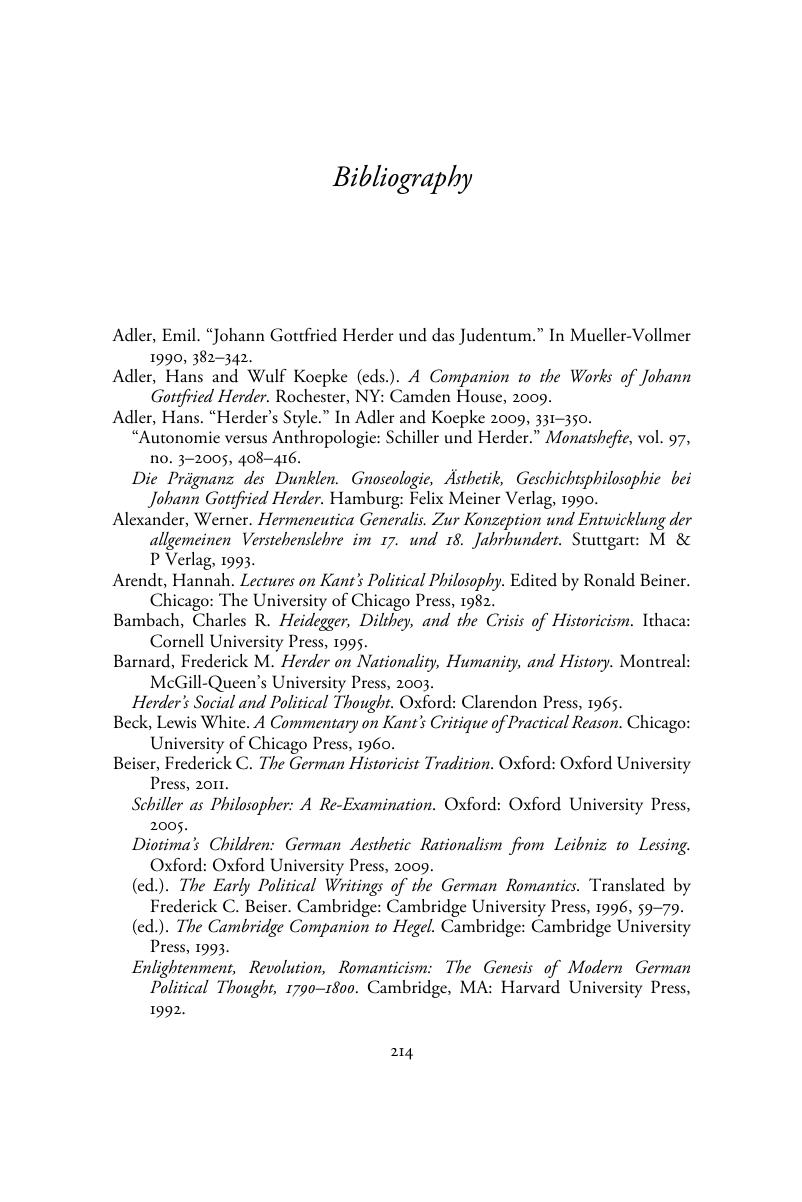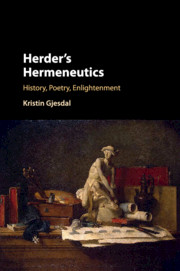Book contents
- Herder’s Hermeneutics
- Herder’s Hermeneutics
- Copyright page
- Epigraph
- Contents
- Preface
- Acknowledgments
- Abbreviations
- Introduction
- Chapter 1 The Future of Philosophy
- Chapter 2 Poetry, History, Aesthetics
- Chapter 3 Aesthetic Value and Historical Understanding
- Chapter 4 Human Nature and Human Science
- Chapter 5 Prejudice and Interpretation
- Chapter 6 Critique and Bildung
- Chapter 7 Self and Other
- Conclusion
- Bibliography
- Index
- References
Bibliography
Published online by Cambridge University Press: 05 September 2017
- Herder’s Hermeneutics
- Herder’s Hermeneutics
- Copyright page
- Epigraph
- Contents
- Preface
- Acknowledgments
- Abbreviations
- Introduction
- Chapter 1 The Future of Philosophy
- Chapter 2 Poetry, History, Aesthetics
- Chapter 3 Aesthetic Value and Historical Understanding
- Chapter 4 Human Nature and Human Science
- Chapter 5 Prejudice and Interpretation
- Chapter 6 Critique and Bildung
- Chapter 7 Self and Other
- Conclusion
- Bibliography
- Index
- References
Summary

- Type
- Chapter
- Information
- Herder's HermeneuticsHistory, Poetry, Enlightenment, pp. 214 - 227Publisher: Cambridge University PressPrint publication year: 2017



